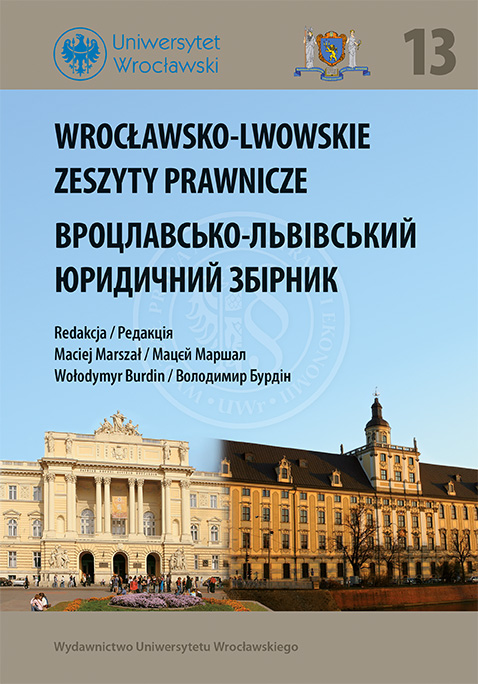

Artykuły

The Lviv professor Juliusz Makarewicz (1872–1955) is widely known as undoubtedly one of the most outstanding Polish lawyers in the field of criminal law, and the co-creator of the 1932 penal code. However, he often dealt with issues related to the philosophy of law and even general sociology. The aim of this paper is to analyze Makarewicz’s views on the essence of law as well as the scope and nature of the philosophy of law. Makarewicz tried to build a synthesis of the currents of legal thought, which he considered to be fundamental to modern times, but he gave primacy to the law of nature. Makarewicz defended the concept of the law of nature, although he claimed that it could no longer be created in the same way as in the 17th or 18th century. It must be based on empirically verifiable facts, but not in isolation from them. The Lviv scholar presented such a concept of the law of nature which on the one hand was to be a response to the criticism made by positivists and representatives of the historical school, and on the other hand was a polemic against the theory of Rudolf Stammler. He was of the opinion that the philosophy of law should create a synthesis of legal phenomena, and at the same time search for the ideal in law.
Makarewicz criticized Stammler’s theory because he claimed it was related to legislative policy or the application of law. In this respect, it shows similarities with the theory of Rudolf von Jhering. Stammler’s “law of nature with variable content” simply leads to an interpretation of statutory law with regard to the concept of equity or, rather, how it is understood in a given epoch. On the other hand, Jhering’s ideal of law is law corresponding to the given social relations. In addition to traditionally distinguished types of legal interpretation, Makarewicz distinguished also “philosophical” interpretation. Within its framework, the “ideal” of a given legal institution would be determined, that is, the state to which the historical development of this institution leads. In the process of applying the law, one would choose an understanding of the legal provision that contributes most to the realization of this ideal.
In the 1930s, Makarewicz claimed that criminal law is a kind of a “photograph” of the political system of a given state and the relations between the authorities and the citizens prevailing in it. In his opinion, this regularity was shown by the law of the totalitarian states, namely, the Soviet Union and the Third Reich, which allowed for the use of analogies in criminal law. Makarewicz criticized the amendment to the German criminal code, adopted in 1935, which changed the definition of crime, recognizing that it was an act deserving punishment in accordance with the “basic idea” of the criminal law and the sense of the nation (Volksempfinden). Makarewicz considered this legal act to show a regression in the development of law, as it resulted in the restoration of customary law as a source of criminal law. Thus, the Lviv lawyer defended the principles of criminal law that were developed in the era of the Enlightenment. The analysis carried out in the article leads to the conclusion that Makarewicz formulated an original position on the ground of philosophy of law, although it was not the main subject of his interests.